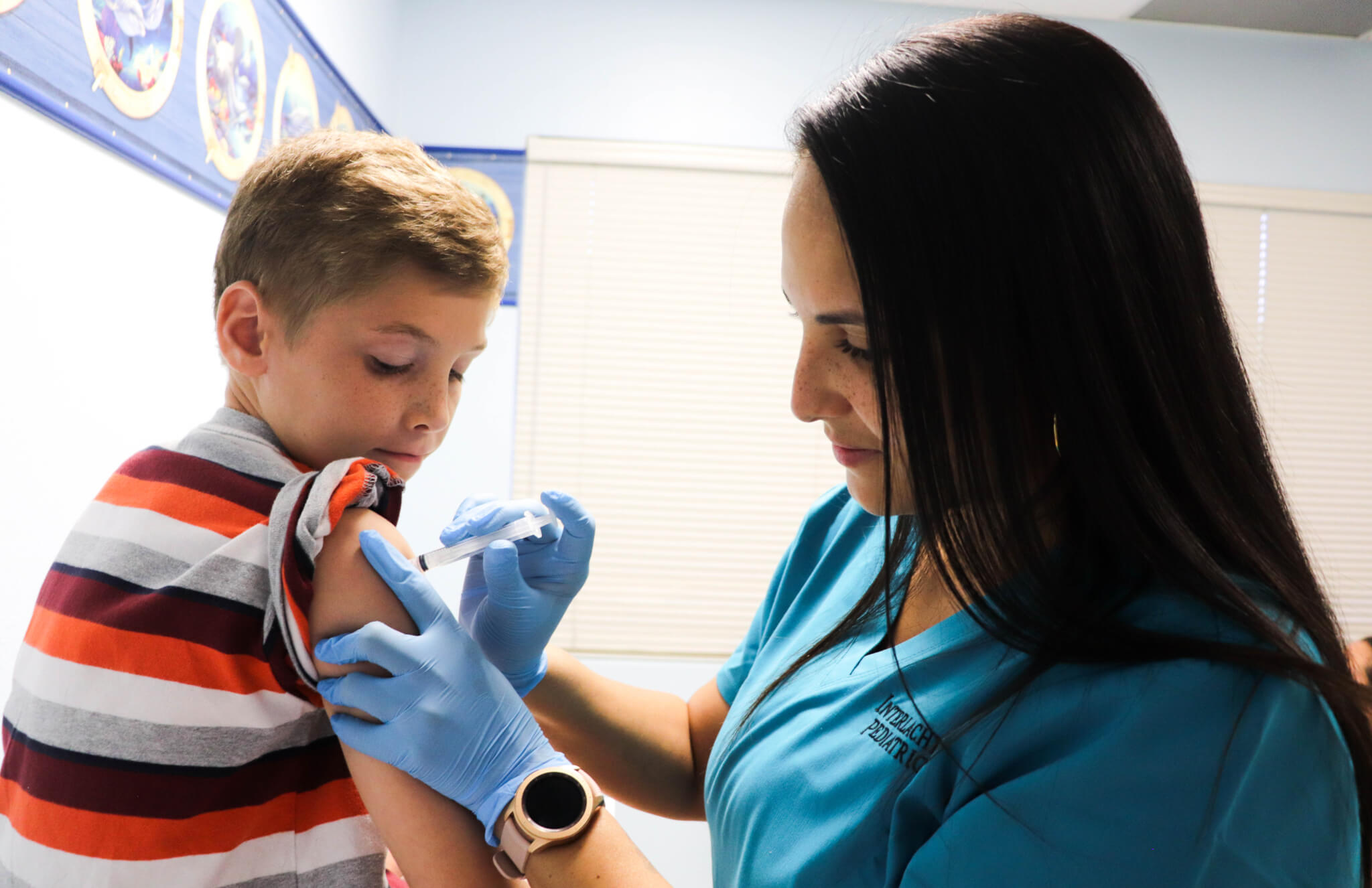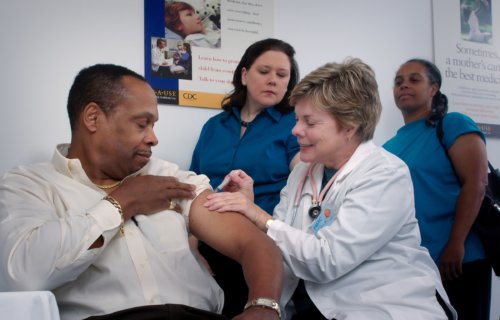For decades, as autumn approached, we would receive reminders to get a flu shot, with recommendations focusing on the most vulnerable populations. It was simple. Now, it’s more complicated and even confusing at times. The work of many dedicated and brilliant scientists has expanded the numbers and types of vaccines recommended for fighting off some fierce respiratory diseases with potentially deadly complications. These include influenza (flu), respiratory syncytial virus (RSV), and COVID-19.
The current vaccines raise questions new to the field of healthcare – who should receive them? When and how should they be administered? Can they be mixed? Let’s look at the three respiratory diseases of greatest concern for which there are currently vaccines, as well as recommendations for those looking to take them this fall.
Flu vaccines
According to the Advisory Committee on Immunization Practices (ACIP), everyone six months of age and older should receive an influenza vaccine — better known as the annual flu shot.
Influenza vaccination, ideally, would prevent 100 percent of cases. A small number of people, however, do not develop full immunity. In these people, vaccination slashes the risk of severe disease, need for hospitalization, and death. People 65 and older should receive high-dose influenza vaccine preparations.
Starting this year, people with egg allergies can receive any influenza vaccine, either egg-based or non-egg-based, that is otherwise appropriate for their age. It is not possible to closely predict when seasonal influenza will arrive, but it typically peaks in December to January, with most cases occurring in November through March. Vaccination in September or October will still provide protection even if the flu season arrives as late as February or March. The vaccine is already available, and you can get it now.

RSV vaccines
RSV can cause severe lower respiratory tract infections (LRTIs). Adults 60 and older and infants are especially vulnerable. Two RSV vaccines were approved by the U.S. Food and Drug Administration (FDA) in May 2023, for the prevention of LRTIs in adults 60 and older. In June, the ACIP recommended that people in this age range receive a single dose of an RSV vaccine. They advise using shared clinical decision-making between the patient and their healthcare provider to choose whether to immunize.
You and your provider should discuss your underlying health conditions, your risk of a severe LRTI, and the potential benefits, risks, and limitations of vaccination. The people most likely to benefit from RSV vaccination are over the age of 60, those with chronic lung diseases, asthma, congestive heart failure, coronary artery disease, diabetes, chronic kidney or liver diseases, and moderate or severe immunosuppression.
The time to get vaccinated for RSV is now, without regard to season. The Centers for Disease Control and Prevention’s (CDC) RSV Vaccine Information Statement should be provided to you.
One of the two approved RSV vaccines (Abrysvo, manufactured by Pfizer) was also approved in late August 2023 for use in women who are 32 to 36 weeks pregnant. It protects infants against RSV from birth to age six months. The babies will be born with the protection of their mothers’ antibodies. The vaccine was well-tolerated during pregnancy with minimal side-effects. The ACIP has not issued recommendations for the use of the RSV vaccine in pregnancy, but guidelines are expected soon.

Updated COVID-19 vaccines
The updated COVID-19 vaccines are expected to target the XBB.1.5 strain of Omicron, which has circulated widely throughout the U.S. in 2023. These vaccines have not been evaluated by the FDA, and the CDC and ACIP have not yet provided guidelines. It is expected that once approved, the updated COVID-19 vaccines will be recommended for:
- All adults 65 and older
- Adults of any age with chronic medical conditions that make the risk of severe COVID-19 more likely
- Anyone with moderate or severe immunocompromising conditions
- Those who are pregnant
Recommendations are also pending for other populations, such as healthy adults 50-65, adults younger than 50 with chronic health conditions, teens, and older children. It is expected that shared decision-making will be recommended for these groups.
If you have had a recent COVID-19 infection, you should wait at least three months before getting a fall 2023-updated COVID vaccine. If you received a dose of one of the current bivalent vaccines at any time since July 2023, you should also wait three months before receiving the fall 2023 vaccine. Patients with severe immunocompromising conditions should discuss timing with their healthcare providers.
COVID-19 infection rates, on the rise nationally, have raised questions about boosting those who are eligible now. Given that the updated COVID-19 vaccines are on the way, you should wait for the updated vaccine.
People not in the higher-risk groups should consider when they want the highest level of protection since we know that protective immunity begins to wane two to three months after immunization. For example, if you plan to spend the winter holidays traveling or with people in large indoor gatherings, you may want to time your updated COVID-19 vaccine for late October or early November. Maximum immunity develops over several weeks from the time of immunization.
Timing and Co-Administration of RSV Vaccines
An influenza vaccine can be received simultaneously with either the RSV vaccine or the updated COVID-19 vaccine. Whenever multiple vaccines are administered at the same time, the injection sites should be spaced appropriately from one another, or in opposite arms. Most experts are recommending a two-week period between receiving an RSV vaccine and the updated COVID-19 vaccine, but there is no data to guide these decisions.
Do what works best for you and your schedule. Some people may be unable to make separate trips to their provider’s office or local pharmacy for immunization. That should not prohibit getting immunized.
Although the timing of fall vaccines is more complex this year, the main message is how important these immunizations are to staying healthy during the winter respiratory virus season.
Information in this article comes courtesy of Judith A. O’Donnell, MD, Chief of Infectious Diseases, director of infection prevention, and hospital epidemiologist at Penn Presbyterian Medical Center, Philadelphia.

